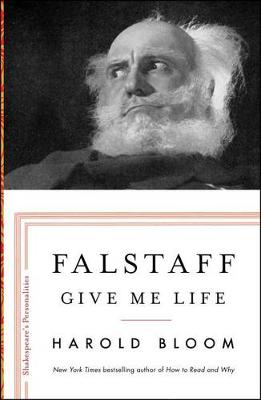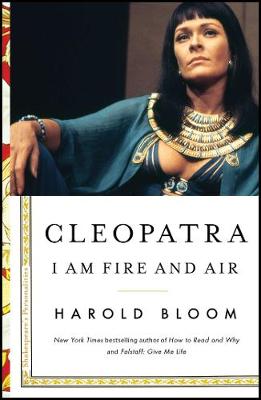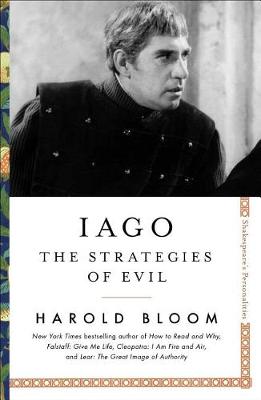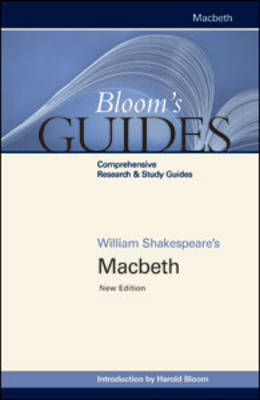Shakespeare's Personalities
4 primary works
Book 1
From Harold Bloom, one of the greatest Shakespeare scholars of our time comes "a timely reminder of the power and possibility of words [and] the last love letter to the shaping spirit of Bloom's imagination" (front page, The New York Times Book Review) and an intimate, wise, deeply compelling portrait of Falstaff-Shakespeare's greatest enduring and complex comedic characters.
Falstaff is both a comic and tragic central protagonist in Shakespeare's three Henry plays: Henry IV, Parts One and Two, and Henry V. He is companion to Prince Hal (the future Henry V), who loves him, goads, him, teases him, indulges his vast appetites, and commits all sorts of mischief with him-some innocent, some cruel. Falstaff can be lewd, funny, careless of others, a bad creditor, an unreliable friend, and in the end, devastatingly reckless in his presumption of loyalty from the new King.
Award-winning author and esteemed professor Harold Bloom writes about Falstaff with the deepest compassion and sympathy and also with unerring wisdom. He uses the relationship between Falstaff and Hal to explore the devastation of severed bonds and the heartbreak of betrayal. Just as we encounter one type of Anna Karenina or Jay Gatsby when we are young adults and another when we are middle-aged, Bloom writes about his own shifting understanding of Falstaff over the course of his lifetime. Ultimately we come away with a deeper appreciation of this profoundly complex character, and this "poignant work" (Publishers Weekly, starred review) as a whole becomes an extraordinarily moving argument for literature as a path to and a measure of our humanity.
Bloom is mesmerizing in the classroom, wrestling with the often tragic choices Shakespeare's characters make. "In this first of five books about Shakespearean personalities, Bloom brings erudition and boundless enthusiasm" (Kirkus Reviews, starred review) and his exhilarating Falstaff invites us to look at a character as a flawed human who might live in our world.
Falstaff is both a comic and tragic central protagonist in Shakespeare's three Henry plays: Henry IV, Parts One and Two, and Henry V. He is companion to Prince Hal (the future Henry V), who loves him, goads, him, teases him, indulges his vast appetites, and commits all sorts of mischief with him-some innocent, some cruel. Falstaff can be lewd, funny, careless of others, a bad creditor, an unreliable friend, and in the end, devastatingly reckless in his presumption of loyalty from the new King.
Award-winning author and esteemed professor Harold Bloom writes about Falstaff with the deepest compassion and sympathy and also with unerring wisdom. He uses the relationship between Falstaff and Hal to explore the devastation of severed bonds and the heartbreak of betrayal. Just as we encounter one type of Anna Karenina or Jay Gatsby when we are young adults and another when we are middle-aged, Bloom writes about his own shifting understanding of Falstaff over the course of his lifetime. Ultimately we come away with a deeper appreciation of this profoundly complex character, and this "poignant work" (Publishers Weekly, starred review) as a whole becomes an extraordinarily moving argument for literature as a path to and a measure of our humanity.
Bloom is mesmerizing in the classroom, wrestling with the often tragic choices Shakespeare's characters make. "In this first of five books about Shakespearean personalities, Bloom brings erudition and boundless enthusiasm" (Kirkus Reviews, starred review) and his exhilarating Falstaff invites us to look at a character as a flawed human who might live in our world.
Book 2
From Harold Bloom, one of the greatest Shakespeare scholars of our time, comes an intimate, wise, deeply compelling portrait of Cleopatra-one of the Bard's most riveting and memorable female characters.
Cleopatra is one of the most famous women in history-and thanks to Shakespeare, one of the most intriguing personalities in literature. She is lover of Marc Antony, defender of Egypt, and, perhaps most enduringly, a champion of life. Cleopatra is supremely vexing, tragic, and complex. She has fascinated readers and audiences for centuries and has been played by the greatest actresses of their time, from Elizabeth Taylor to Vivien Leigh to Janet Suzman to Judi Dench.
Award-winning writer and beloved professor Harold Bloom writes about Cleopatra with wisdom, joy, exuberance, and compassion. He also explores his own personal relationship to the character: Just as we encounter one Anna Karenina or Jay Gatsby when we are in high school and college and another when we are adults, Bloom explains his shifting understanding of Cleopatra over the course of his own lifetime. The book becomes an extraordinarily moving argument for literature as a path to and a measure of our own humanity.
Bloom is mesmerizing in the classroom, wrestling with the often tragic choices Shakespeare's characters make. With Cleopatra, he delivers exhilarating clarity and invites us to look at this character as a flawed human who might be living in our world. The result is an invaluable resource from our greatest literary critic.
Cleopatra is one of the most famous women in history-and thanks to Shakespeare, one of the most intriguing personalities in literature. She is lover of Marc Antony, defender of Egypt, and, perhaps most enduringly, a champion of life. Cleopatra is supremely vexing, tragic, and complex. She has fascinated readers and audiences for centuries and has been played by the greatest actresses of their time, from Elizabeth Taylor to Vivien Leigh to Janet Suzman to Judi Dench.
Award-winning writer and beloved professor Harold Bloom writes about Cleopatra with wisdom, joy, exuberance, and compassion. He also explores his own personal relationship to the character: Just as we encounter one Anna Karenina or Jay Gatsby when we are in high school and college and another when we are adults, Bloom explains his shifting understanding of Cleopatra over the course of his own lifetime. The book becomes an extraordinarily moving argument for literature as a path to and a measure of our own humanity.
Bloom is mesmerizing in the classroom, wrestling with the often tragic choices Shakespeare's characters make. With Cleopatra, he delivers exhilarating clarity and invites us to look at this character as a flawed human who might be living in our world. The result is an invaluable resource from our greatest literary critic.
Book 4
From one of the greatest Shakespeare scholars of our time, Harold Bloom presents Othello's Iago, perhaps the Bard's most compelling villain-the fourth in a series of five short books about the great playwright's most significant personalities.
In all of literature, few antagonists have displayed the ruthless cunning and unscrupulous deceit of Iago, the antagonist to Othello. Often described as Machiavellian, Iago is a fascinating psychological specimen: at once a shrewd expert of the human mind and yet, himself a deeply troubled man.
One of Shakespeare's most provocative and culturally relevant plays, Othello is widely studied for its complex and enduring themes of race and racism, love, trust, betrayal, and repentance. It remains widely performed across professional and community theatre alike and has been the source for many film and literary adaptations. Now award-winning writer and beloved professor Harold Bloom investigates Iago's motives and unthinkable actions with razor-sharp insight, agility, and compassion. Why and how does Iago uses fake news to destroy Othello and several other characters in his path? What can Othello tell us about racism?
Bloom is mesmerizing in the classroom, treating Shakespeare's characters like people he has known all his life. He delivers that kind of exhilarating intimacy and clarity in these pages, writing about his shifting understanding-over the course of his own lifetime-of this endlessly compelling figure, so that Iago also becomes an extraordinarily moving argument for literature as a path to and a measure of our humanity. This is a provocative study for our time.
In all of literature, few antagonists have displayed the ruthless cunning and unscrupulous deceit of Iago, the antagonist to Othello. Often described as Machiavellian, Iago is a fascinating psychological specimen: at once a shrewd expert of the human mind and yet, himself a deeply troubled man.
One of Shakespeare's most provocative and culturally relevant plays, Othello is widely studied for its complex and enduring themes of race and racism, love, trust, betrayal, and repentance. It remains widely performed across professional and community theatre alike and has been the source for many film and literary adaptations. Now award-winning writer and beloved professor Harold Bloom investigates Iago's motives and unthinkable actions with razor-sharp insight, agility, and compassion. Why and how does Iago uses fake news to destroy Othello and several other characters in his path? What can Othello tell us about racism?
Bloom is mesmerizing in the classroom, treating Shakespeare's characters like people he has known all his life. He delivers that kind of exhilarating intimacy and clarity in these pages, writing about his shifting understanding-over the course of his own lifetime-of this endlessly compelling figure, so that Iago also becomes an extraordinarily moving argument for literature as a path to and a measure of our humanity. This is a provocative study for our time.
Book 5
The discovery and application of nuclear power is one of the most profound scientific accomplishments of the 20th century, beginning with tentative explorations of the structure of matter, expanding into a rapid succession of unexpected discoveries, and finally settling into a seamless transition from theoretical science to applied engineering. There were many changes to nuclear power during this century—science transitioned from an academic pursuit to an industry, the use of uranium changed from an occasional orange or green dye in ceramics to major power-fuel, and public safety concerns shifted from boiler explosions on steamboats to nuclear reactor explosions on continents. Written in clear and accessible language, The History of Nuclear Power describes the sequence of these changes, as science and technology rapidly matured more than a hundred years and as the scale of civilization and its energy needs expanded. Providing a fundamental introduction to this complicated subject, this new, full-color resource is ideal for high school and college students interested in the future through a study of the past.



